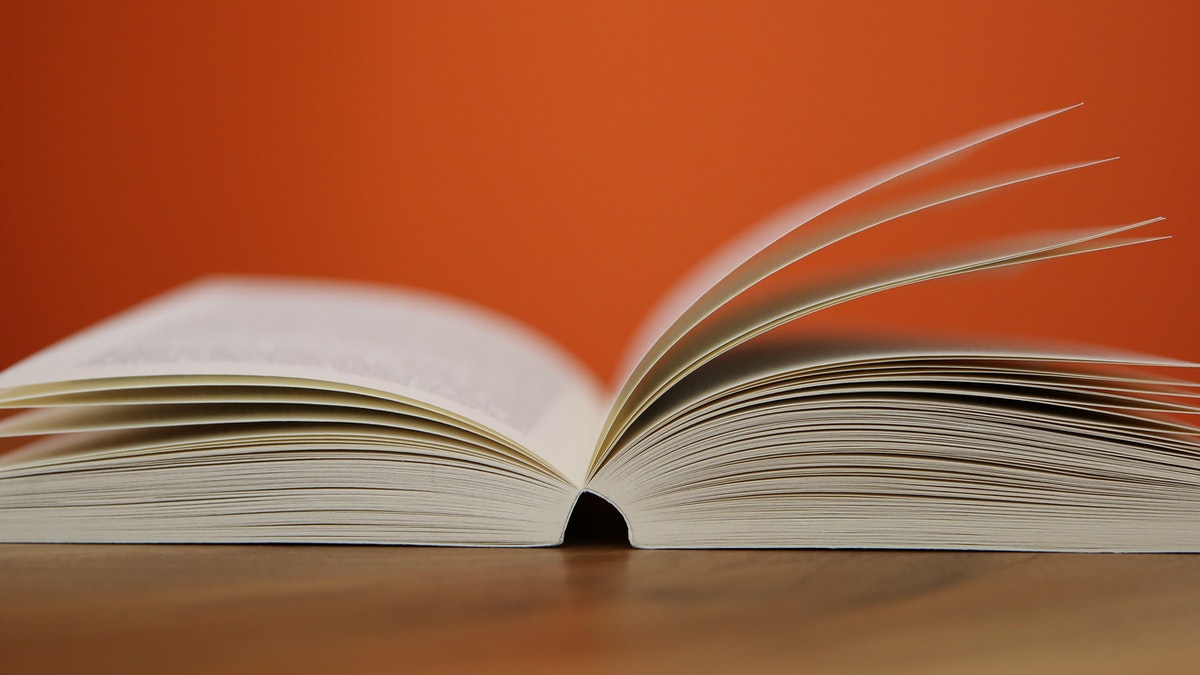In this poem, the poet highlights the destructive as well as the constructive aspects of the wind. He says that the wind teases and makes fun of the weak persons or things. Wind symbolises the difficulties that one faces in one’s life. Difficulties frighten us if we are weak. When we are brave, difficulties do not harm us and disappear quietly.
Articles
The poem, "Trees" is a long catalogue describing the various advantages of trees. Every person who looks at a tree appreciates it for a different reason.
The poem ‘Chivvy’ is a catalogues of various do’s and don’ts that the grown-ups dictate to young children. The adults constantly give a list of instructions to the children about how to sit, how to talk, how to eat and so on.
The poem, ‘The Rebel’ describes the character of rebel, a person who does not conform to the norms of the society. The rebel is described as a person who would contradict others in order to be different.
The Short poem gives a description of the squirrel, its movement, the food it likes, the way it plays and so on.
Cricket is one of the forms of the many games played with a ball and bat in England from past 500 years. It evolved as a distinct game around 17th century. Initially, during the mid of the 18th century, the bat used to be like the hockey stick curving outwards.
Nishad and his 10 year old sister Maya has always been inquisitive about their neighbour Mr Nath. One day their marbles went inside his house and Nishad got a chance to catch a glimpse of Mr Nath.
Early man must have found fire to be dangerous and frightening. Fire must have been a mystery for an early man but it is known today that it is a result of chemical reaction. When oxygen present in air combines with carbon and hydrogen present in a fuel, energy is released in form of heat and light and this is what fire is.
The author had known the shoemaker for many years because he used to make boots for his father. Mr Gessler was the shoemaker who lived with his elder brother in their shop in London.
There was an old childless couple that lived in Japan in 19th century. They had a pet dog called Muko whom they treated as their own child. The old man was rice farmer. He will go to the field with his hoe or spade early in the morning and will work there till sunset.
There was a wrestler called Vijay Singh who could beat all other wrestlers in the world. He had a weakness which often landed him in problems. He was found of praising himself.
It was the season for Hilsa fish and it was Hilsa that everyone was talking about. In the market fishmongers were selling only Hilsa fish luring customers to buy it. Even in the royal court, countries were talking about Hilsa.
Mridu is a young girl living with her grandmother Tapi and grandfather Thatha in Chennai. Mridu goes along with Tapi to her aunt Rukku Manni's place one afternoon.
Once there was a king who thought that to be a successful ruler he must know the answer of three question.
Kalpana was born in Karnal, Haryana. She never thought she would cross the frontiers of space. She went to an engineering college after completing her education from the Tagore school. After getting a bachelor Science Degree in aeronautical engineering, she went to the United States to complete her master’s degree.
Saeeda's mother had fever, cough and painful joints. She has been treated by many doctors but she could not recover from her illness. She was kept in a small room with closed doors and windows. She was deprived of sunshine and fresh air. Saeeda’s mother became critical and sold some of her ornaments to pay the doctor's fee and the cost of medicine.
A Monkey made his home on the bank of a river. He lived on a tree full of fruits. He was very happy and satisfied. He wanted to have a friend to talk and share the fruits.
Tansen was the only child of singer Mukandan Mistra and his wife. They lived in Behat near Gwalior. Tansen was a naughty child. He used to play in the forest and copy the calls of birds and animals.
A farmer and his wife lived in a village with their son. They wanted a pet who can be a companion for their son. The farmer’s wife liked the idea. The farmer brought a tiny mongoose who will be a friend to their son. The mongoose grown to its full size in 5 or 6 months, but the farmer’s son was still a baby in the cradle.
The author as a young boy used to live in his grandfather's house in Dehradun. There was an old banyan tree in the garden. The tree was home to squirrels, butterflies and snails. The author used to hide in its branches and behind thick green leaves.
These are the driest places on Earth and sometimes remain without rain for years. Desert animals cannot live without water or stay for long periods under Sun. They have adapted themselves to live in harsh condition, examples are gerbils and beetles. Some deserts are rocky with small bushes while others have flowers during the spring.
A fair was organised every year on the occasion of Eid. The fair lasted for many days and one could buy anything from there. Rasheed’s uncle took him to the fair along with their domestic help Bhaiya. There was a big crowed at the fair. His uncle met a few of his friends.
Jumman Shaikh and Algu Choudhry were good friends. Both were respected in their village. Jumman had an aunt who gave her property to him, thinking he would look after her. This worked well for few years, but later the situation changed.
This lesson tells us that all the people in this world are different. People across the world have different likes and dislike. They have unique features and qualities and these have been described through various examples in the chapter.
This story is about a school which has different way of teachings humanitarian values to students. The writer visited a school as he had heard a lot about it. He wanted to meet Miss Beam.
A Young woodcutter named Taro lived with his parents on a lonely hillside. He worked hard to fulfil his parents’ wishes. He used to work hard, but earned very little money. He was sad because he wanted to make his parents happy.
Earlier dogs used to be their own master, but one day a dog decided to become the servant of one, who was the strongest on the Earth. He was sick and was tired of moving here and there. He was frightened of those, who were stronger than him.
"The Tiger King" is a satirical short story written by Kalki Krishnamurthy. It tells the tale of a fictional king in a princely state in India who becomes obsessed with hunting and killing tigers. Here are the important points of the story in detail:
"We Too Are Human Beings" is a powerful autobiographical essay by Bama, an Indian Dalit writer and activist. Bama recounts her personal experiences of caste-based discrimination and oppression as she navigates through the hierarchical social structure in India. Here are the important points of the essay in detail:
"The Cutting of My Long Hair" is a personal narrative by Zitkala-Sa (also known as Gertrude Simmons Bonnin), a Native American woman who shares her experience of having her long hair cut as a young girl attending a missionary boarding school. Here are the important points of the story in detail:
"Evans Tries an O-Level" is a detective short story by Colin Dexter featuring his famous detective character, Inspector Morse. Here are the important points of the story in detail:
"The Browning Version" by Terence Rattigan is a one-act play that explores themes of regret, redemption, and the power of compassion. Here are the important points of the play in detail:
"A Roadside Stand" is a poem by Robert Frost. Here are the important points of "A Roadside Stand" in detail:
"Keeping Quiet" by Pablo Neruda is a powerful and introspective poem that explores the importance of stillness, introspection, and unity in a chaotic world. Here are the important points of the poem in detail:
"My Mother at Sixty-Six" by Kamala Das is a poignant and introspective poem that reflects on the aging process and the complex emotions that arise as the speaker observes her mother's vulnerability. Here are the important points of the poem in detail:
"The Rattrap" by Selma Lagerlöf is a heartwarming short story that explores the themes of kindness, compassion, and the potential for change. Here are the important points of the story in detail:
"On the Face of It" by Susan Hill is a short story that explores themes of appearance versus reality, loneliness, and the power of human connection. Here are the important points of the story in detail:
"Aunt Jennifer's Tigers" by Adrienne Rich is a poignant and thought-provoking poem that explores themes of gender roles, power dynamics, and the quest for personal freedom. Here are the important points of the poem in detail:
"A Thing of Beauty" by John Keats is a sonnet that celebrates the power and everlasting nature of beauty in a world filled with transience and sorrow. Here are the important points of the poem in detail:
"An Elementary School Classroom in a Slum" by Stephen Spender is a thought-provoking poem that explores the stark contrast between the idealized world of education and the harsh reality faced by children in a slum. Here are the important points of the poem in detail:
"Going Places" by A.R. Barton is a short story that explores the themes of ambition, conformity, and the desire for recognition. The story revolves around a young boy named Robert who harbors dreams of success and popularity.
"Deep Water" by William Douglas is a personal narrative that explores the author's fear of water and his journey to overcome it. Here are the important points of the story in detail:
"The Last Lesson" by Alphonse Daudet is a poignant short story set in the backdrop of 19th-century France, during the time of the Franco-Prussian War. The story revolves around a young French boy named Franz, who discovers the importance of education and the value of his native language through a life-changing experience on his last day of school. Here are the important points of the story in detail:
"The Tale of Melon City" by Vikram Seth is a satirical poem that highlights the absurdity and corruption of bureaucracy and the misuse of power. Here are the important points of the poem:
"The Ghat of the Only World" is a poem by Amitav Ghosh that explores themes of loss, grief, and the cyclical nature of life and death. Here are the important points of the poem:
"The Address" by Marga Minco is a short story set during World War II that explores the themes of loss, identity, and the impact of war on individuals and communities. Here are the important points of the story:
"Indigo" by Louis Fischer is a short story set in colonial India during the time of British rule. It revolves around the theme of resistance against oppressive systems and the struggles faced by the indigo farmers.
"Lost Spring" by Anees Jung is a thought-provoking essay that sheds light on the lives of the marginalized and impoverished children in the city of Delhi, who are forced to work in the bangle-making industry. Here are the important points of the essay in detail:
"A Wedding in Brownsville" by Isaac Bashevis Singer is a short story that explores themes of tradition, love, and the clash between old and new ways of life. Here are the important points of the story:
"Birth" by A.J. Cronin is a short story that explores the themes of compassion, resilience, and the transformative power of a caring and empathetic doctor. Here are the important points of the story:






















